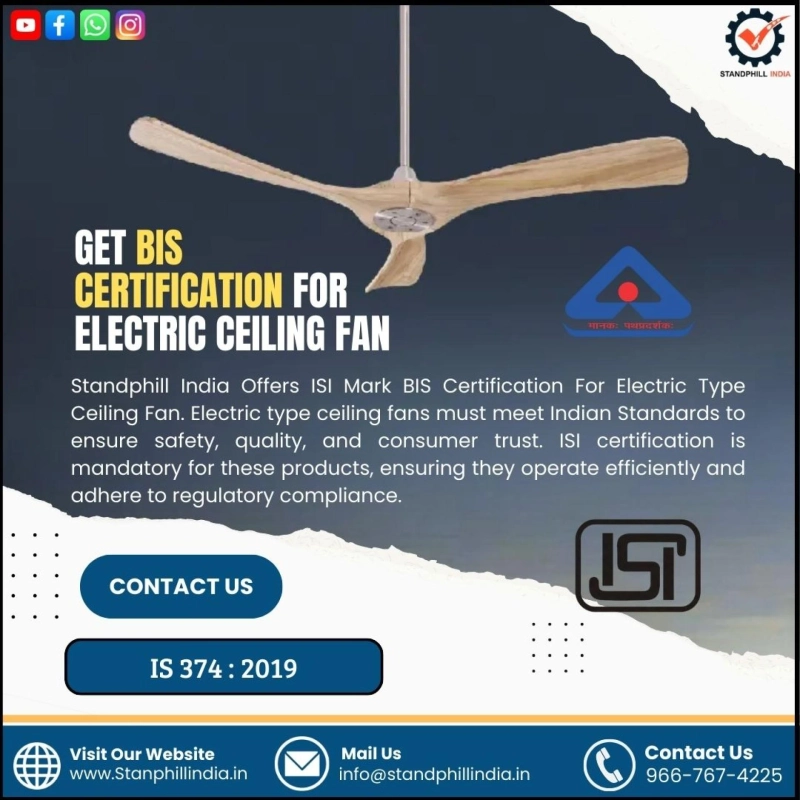In today’s highly competitive manufacturing landscape, obtaining certifications like BIS FMCS Certification is essential to ensure quality, safety, and compliance with regulatory standards. This certification helps manufacturers export products seamlessly and gain trust in global markets. If you’re a manufacturer looking to understand BIS FMCS certification, this guide will walk you through its significance, process, and benefits.
What is BIS FMCS Certification?
The BIS FMCS (Foreign Manufacturers Certification Scheme) is issued by the Bureau of Indian Standards (BIS) to foreign manufacturers who export products to India. This certification ensures that the products meet the required Indian standards and are safe for consumers. It applies to a wide range of products, including electrical appliances, building materials, chemicals, and more.
Unlike the regular ISI certification, which is for domestic manufacturers, BIS FMCS is specifically designed for foreign manufacturers who do not have production facilities in India.
Why is BIS FMCS Certification Important?
- Legal Compliance: BIS FMCS certification is mandatory for certain product categories under Indian law. Exporting uncertified products to India can result in penalties, shipment rejections, and loss of business opportunities.
- Consumer Safety: Certified products are tested for quality, reliability, and safety. This reassures consumers and protects them from substandard or unsafe goods.
- Market Access: BIS FMCS certification allows foreign manufacturers to tap into the vast Indian market. It gives their products a competitive edge and builds trust with Indian consumers and businesses.
- Brand Reputation: Certification demonstrates a commitment to quality and compliance, enhancing the manufacturer’s reputation in international markets.
- Seamless Exports: With BIS FMCS certification, manufacturers can avoid delays in customs clearance and ensure a smooth export process.
Steps to Obtain BIS FMCS Certification
The process of obtaining BIS FMCS certification involves several steps, including application submission, product testing, and factory inspection. Here’s a breakdown of the process:
- Application Submission: Manufacturers need to submit a detailed application form to BIS, along with product specifications, test reports, and other required documents.
- Nomination of Authorized Indian Representative (AIR): As part of the application, foreign manufacturers must appoint an AIR who will act as their liaison with BIS. The AIR must be a resident of India.
- Product Testing: The product is tested in BIS-approved laboratories to ensure it meets Indian standards. Tests cover parameters like safety, performance, and quality.
- Factory Inspection: BIS officials conduct an inspection of the manufacturing facility to evaluate production processes, quality control systems, and raw materials.
- Certification Approval: Once the product passes testing and the factory inspection is cleared, BIS grants the FMCS certification. The manufacturer can then use the BIS mark on their products.
- Renewal and Audits: BIS FMCS certification is valid for a specific period, after which it must be renewed. BIS may also conduct periodic audits to ensure continued compliance.
Benefits of Working with BIS Certification Consultants
Navigating the BIS FMCS certification process can be challenging, especially for first-time applicants. Professional consultants like Standphill India offer expert assistance to make the process smoother and more efficient. Here’s how they can help:
- Expert Knowledge: Consultants have in-depth knowledge of BIS standards and can guide manufacturers through every step of the process.
- Time and Cost Savings: They handle paperwork, testing coordination, and communication with BIS, saving time and avoiding costly mistakes.
- Hassle-Free Experience: From application submission to final approval, consultants ensure a seamless experience for manufacturers.
Key Takeaways for Manufacturers
- Compliance is Crucial: BIS FMCS certification is mandatory for certain product categories in India. Ensure your products meet the standards to avoid legal complications.
- Plan Ahead: The certification process can take time. Start early to avoid delays in market entry.
- Choose the Right Partner: Working with experienced BIS FMCS consultants like Standphill India can simplify the process and improve your chances of success.
How to Get Started with BIS FMCS Certification
If you’re ready to obtain BIS FMCS certification for your products, reach out to Standphill India for expert guidance. Here’s how you can contact them:
- Visit Their Website: www.standphillindia.in
- Call Them: 📞 96676 74225
- Email Them: ✉️ info@standphillindia.in
Their team of specialists will guide you through the entire process, ensuring your products meet the required standards and are certified without hassle.
Conclusion
BIS FMCS certification is essential for foreign manufacturers who want to export their products to India. It ensures compliance with Indian standards, protects consumers, and opens up lucrative market opportunities. By partnering with trusted consultants like Standphill India, you can navigate the certification process with ease and focus on growing your business.
Take the first step today and make your products a preferred choice for Indian consumers and businesses!


